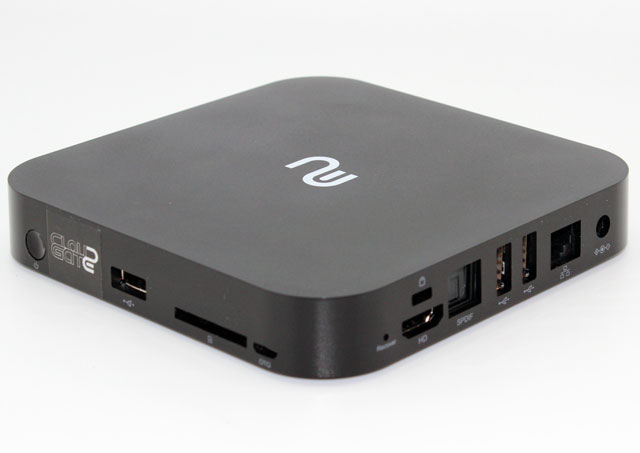
Is the traditional desktop living on borrowed time? It is, if South African company Cloudware gets its way.
The Johannesburg-based company has developed the CloudGate Desktop hardware device, a low-cost box that runs Android, consumes only 10W of power and fits in the palm of the hand.
Cloudware’s head of product, Jonathan Young, says it can replace desktop computers at a fraction of the cost of deploying or maintaining Windows PCs.
The CloudGate Desktop looks remarkably similar to the Apple TV set-top box and features a quad-core, 1,6GHz processor, 2GB of RAM and an 8GB solid-state drive. It also features a mini SD card slot and a number of USB ports to connect peripherals such as a mouse and keyboard.
There is also an HDMI port and it comes bundled with a VGA converter for older monitors.
The company believes it has an ace up its sleeve with the CloudGate product in the form of its locally developed Cloudware software. This software was designed for low-bandwidth conditions and allows businesses to access their corporate Windows environment securely on any device running its software.
Cloudware is a “virtualisation” technology that allows businesses to run applications directly from a server, anywhere there is access to an Internet connection. Cloudware provides users with a window that resembles a Windows desktop. In it, all the applications to which they have access are accessible, including Microsoft’s Office productivity suite.
The apps are not run on the device, but rather “in the cloud” on the server. This means that should a device fail, users can simply connect from another device and continue working as if nothing had happened. The session remains active on the server.
Because the CloudGate Desktop runs Android, it supports most of the apps available on Google Play. Business can limit access to apps, or block the store entirely. The main user interface resembles an Android tablet’s and will be familiar to Android users. Although the CloudGate Desktop runs the relatively old Android 4.2, the company says this doesn’t affect the performance of the device or its capabilities.
CloudGate users will find a Cloudware icon on the Android desktop that gives access to all their company applications and data files.
Young claims Cloudware is secure and no information can be stored locally from the server — not even by copying and pasting — although administrators will be able to toggle this security feature depending on a company’s needs. Essentially, the CloudGate and Cloudware environments run separately to each other.
Young says Cloudware chose Android because it found that users rejected earlier versions of thin-client computing for being too restrictive. With CloudGate, users have access to the Internet, personal e-mail and social media on a separate environment to the corporate servers, removing the burden on technical support. All the business applications that require support are managed centrally.
CloudGate Desktop can be deployed in any sized organisation and the company says it has seen demand from educational institutions. The device sells for R1 999. Cloudware services cost R99/month/user. — (c) 2014 NewsCentral Media




